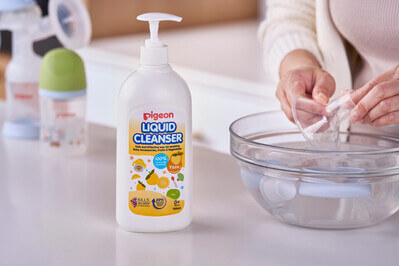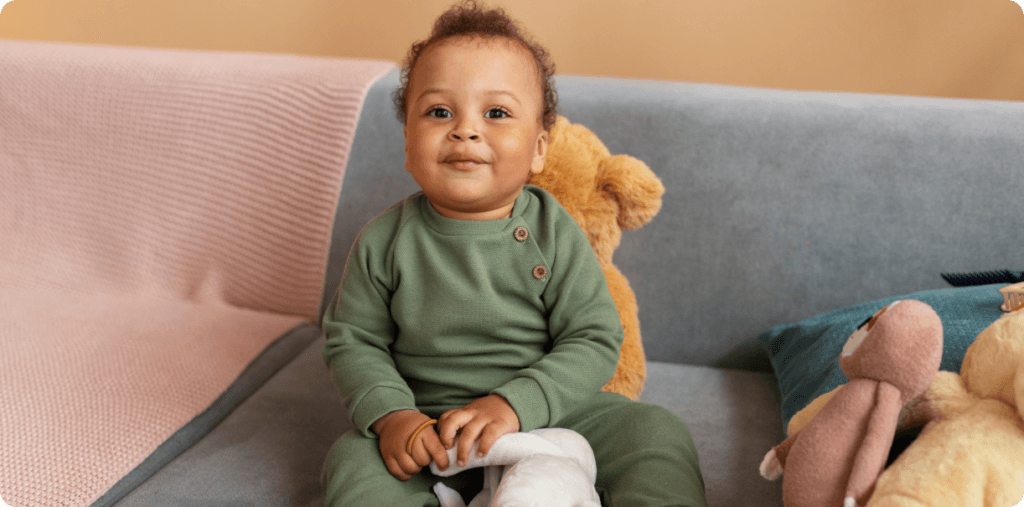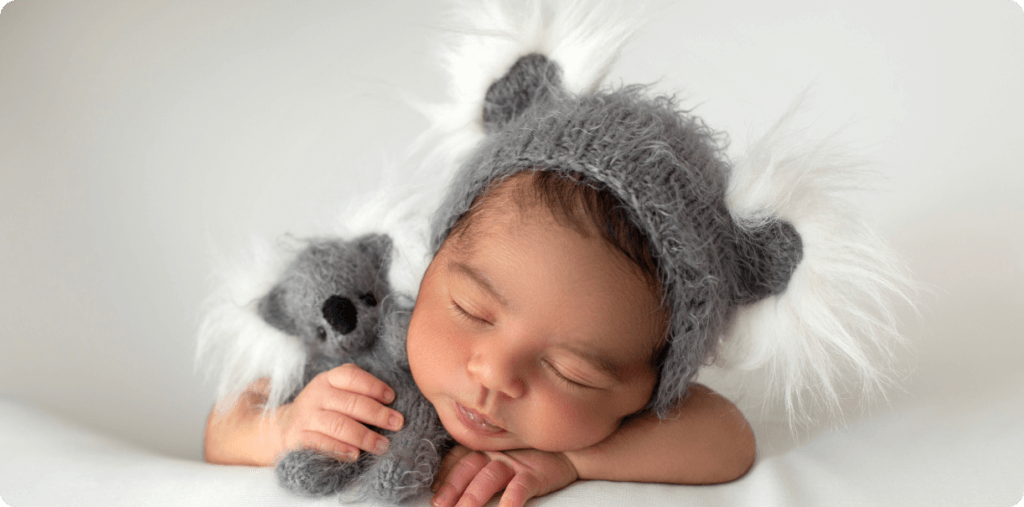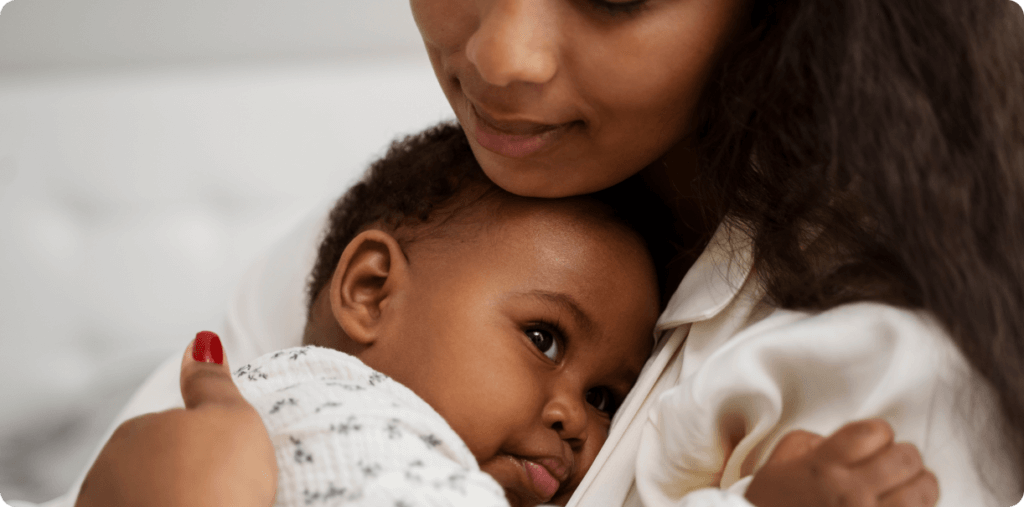
Whatever goes into a baby’s mouth has the potential to cause illness in the baby. Whether it is feeding bottles with milk residue on their nipple, screw lid, or the bottle itself that may be a breeding ground for germs, the toys that the baby plays with when crawling on the ground and then casually puts into his / her mouth, the teethers and pacifiers that constantly move from the baby’s mouth to the floor, the dressing table, the dining table or bed, the breast pump (and its parts) used by the mother to express breast milk to feed to the baby at a later time – they can all contain contamination which could make your baby sick.
All parts of feeding bottles that were used for milk and any other feeding accessories and baby equipment like teethers and pacifiers should be cleaned after each use. Use a mild feeding bottle cleaning liquid that does not contain harmful chemicals to clean the bottles and feeding equipment. PIGEON Liquid Cleanser is made of 100% food-grade material making it completely safe for the babies, even with cleaner residue. The antibacterial milk bottle cleaner thoroughly cleans stubborn milk stains and food stains and can also be used to wash fruits and vegetables for the family. A gentle milk bottle cleaning brush like PIGEON Bottle and Nipple Brush will effectively clean tough stains and scrub the bottle walls. The feeding bottle cleaning brush has an angled handle for easy grip and is made of high-density nylon. It comes attached with a smaller brush specifically for cleaning feeding bottle nipples and small attachments of the breast pump and other accessories. For plastic feeding bottles that may be damaged by scrubbing with brushes that have bristles, use sponge brushes like PIGEON’s 2-Way Sponge Brush which can easily remove tough stains even from the bottom of the bottles because of the folded sponge at the tip of the brush.
Baby toys that are used on a daily basis and that routinely make their way into the baby’s mouth must also be cleaned at least once a day. In addition to this, it is important to keep the floor and spaces that the baby can reach free from dust and dirt.
You may wonder why the feeding bottles and other equipment need to be sterilized if they have already been thoroughly cleaned after every use. While cleaning can remove stubborn stains and dirt, it is the process of sterilization that completely eliminates disease-causing germs from the air or milk residue. Also, cleaning involves the use of water and there may be a chance that the water may not be completely free of microbes. For little babies whose bodies are still in the process of creating antibodies, sterilizing the equipment can go a long way in ensuring their good health.
Sterilizing can be done by putting the feeding bottles, feeding accessories, and other equipment in hot, boiling water for 5 minutes, or using a bottle steamer. While this is how sterilization was carried out traditionally, it can be cumbersome and dangerous if the hot steam or boiling water touches the person’s body. A better alternative to sterilizing feeding bottles is to use a feeding bottle sterilizer machine. PIGEON has a range of electric sterilizers that can sterilize bottles, nipples, and other feeding accessories as well as parts of the breast pumps and small toys. The sterilization cycles in PIGEON bottle sterilizers are quick and effective. They have safety features and the facility to keep the equipment sterile for up to 24 hours. The best bottle sterilizers are those that are convenient to use, effectively sterilize all equipment and keep them sterile till they need to be used again. PIGEON’s range of sterilizers meets all of these criteria.
Feeding bottles, accessories, and other equipment, including toys, must be sterilized before being used for the first time even if they are brand new and opened from manufacturer packaging. Wash your hands thoroughly before sterilizing the equipment.
Ideally, the feeding bottles, nipples, screw lids of the bottles, feeding accessories, and other equipment should also be sterilized after every use. This is particularly important for
babies who were born prematurely, who are younger than 3 months, or have a weak immune system. As babies grow, you may progress to sterilizing once a day. If your baby regularly feeds from bottles, make sure that you have a good number of feeding bottles available for use throughout the day. Also, even if you are sterilizing only once a day, ensure that the bottles and feeding accessories are washed thoroughly immediately after each use.
Electric sterilizers offer the added advantage that you can store the equipment in that sterile environment for up to 24 hours. If you are not using an electric sterilizer, or need to store equipment for more than 24 hours, reassemble the clean and sterilized bottles using tongs (so you do not need to touch them directly) or use thoroughly washed and dried hands and store them in a sealed container. Before reusing, ensure that you place the closed bottles in the sterilizer once more.
Health experts recommend that the baby’s feeding bottles, accessories, and other baby equipment like teethers and pacifiers be sterilized at least till the baby is 12 months old. Sterilizing equipment can help to protect the baby from various infections that cause diarrhea and vomiting. Sterilization is also helpful while you are traveling with the baby and are unsure of how clean the water is at that location. PIGEON Sterilizing Tablets are a great alternative to carrying a sterilizer along on trips as they are easily soluble and highly effective. When using the tabs, there is no need to rinse the equipment after sterilizing and the solution can also be reused after 24 hours.



